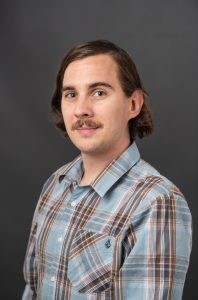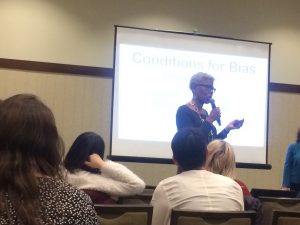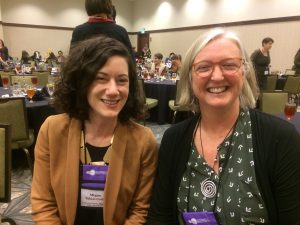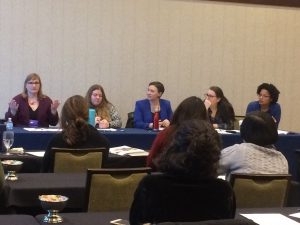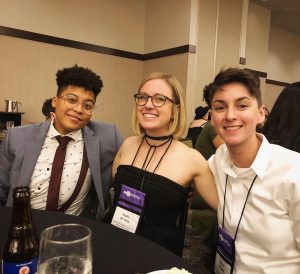The annual meeting of the American Sociological Association is here, with a strong showing from scholars from the UT Austin sociology department. For quick reference, we compiled a list of presentations, talks, discussions, and more featuring our own UT Austin sociologists:
Saturday, August 11th:
8:30 to 10:10am, Philadelphia Marriott Downtown, Level 4, 406
Emily Paine: “Embodied Disruption: Sorting Out Gender and Nonconformity in the Doctor’s Office”
8:30 to 10:10am, Philadelphia Marriott Downtown, Level 4, 405
Robert Ressler: “Can Community Nonprofits Help Children from Diverse Families Learn on a National Scale?”
10:30am to 12:10pm, Philadelphia Marriott Downtown, Level 4, Franklin Hall 9
Sharmila Rudrappa: “Reading Stuart Hall in (New) Times of Ultra-Right Nationalism”
10:30 to 11:30am, Philadelphia Marriott Downtown, Level 5, Salon G
Yiwen Wang: “Family SES and Depression among College Students in China: Mediating Effects of Self-efficacy and Interpersonal Relationships”
10:30am to 12:10pm, Philadelphia Marriott Downtown, Level 4, Franklin Hall 6
Amanda Bosky, Chandra Muller, Eric Grodsky, and John Robert Warren: “Preparing Students for an Advancing Economy: Academic Preparation and Exposure to Bad Occupations at Midlife”
2:30 to 3:30pm, Philadelphia Marriott Downtown, Level 5, Salon C
Jamie O’Quinn: “Responsibilizing Girls’ Sexualities: U.S. Child Marriage, Sexual Violence, and the Neoliberal State”
2:30 to 4:10pm, Philadelphia Marriott Downtown, Level 5, Salon G
Bola Sohn, “How Asian Americans Shape their Pathway Frame at the Intersection of Race, Class, and Social Capital”
2:30 to 4:10pm, Philadelphia Marriott Downtown, Level 4, Franklin Hall 2
Ori Swed, John Sibley Butler, and Connor Sheehan: “The Digital Divide and Veterans’ Health: Differences in Self-reported Health by Internet Usage”
4:30 to 6:10pm, Pennsylvania Convention Center, Level 100, 113C
“Shaping and Informing Public Conversations by Sharing Your Scholarship”
UT Panelist: Sharmila Rudrappa
_____________________________________________
Sunday, August 12th:
8:30 to 9:30am, Philadelphia Marriott Downtown, Level 5, Salon G
Aida Villanueva and Maria Carolina Mota Pereira Aragao: “Girls’ Domestic and Care Work in Brazil: Educational Consequences and Connections to Mothers’ Work”
8:30 to 10:10am, Pennsylvania Convention Center, Level 100, 104B
Nino Bariola: “The Peruvian Foodie Crowd and the Fields of Ethical Consumption”
10:30am to 12:10pm, Philadelphia Marriott Downtown, Level 4, 406
Eldad J. Levy: “Heroes, Villains, and Legacies of Modernization: Transforming Mexican Nationalism”
10:30am to 12:10pm, Pennsylvania Convention Center, Level 100, 113C
Michael Garcia: “Marital Strain and Psychological Distress in Same-Sex and Different-Sex Couples”
12:30 to 1:30pm, Philadelphia Marriott Downtown, Level 5, Salon G
Ari Adut: “Publicity and Common Knowledge”
12:30 to 2:10pm, Philadelphia Marriott Downtown, Level 4, 405
Ken-Hou Lin and Megan Tobias Neely: “American Life in Debt”
2:30 to 4:10pm, Pennsylvania Convention Center, Level 100, 104A
Koit Hung: “Private Troubles, Public Secrets: The Self-representation in Help-seeking Posts on Facebook”
_____________________________________________
Monday, August 13th:
8:30 to 10:10am, Philadelphia Marriott Downtown, Level 4, 404
Elizabeth Cozzolino: “Litigating Relationships: Gendered Conflicts in Child Support Court”
8:30 to 10:10am, Pennsylvania Convention Center, Level 100, 111B
Corinne Reczek, Alexandra Kissling, Lauren Elizabeth Gebhardt-Kram, and Debra Umberson: Gay, Lesbian, and Straight Spouses as the ‘Strong Arm’ of Health Care”
10:30am to 12:10pm, Pennsylvania Convention Center, Level 100, 111A
Shannon Malone Gonzalez, Katie Rogers, Jamie O’Quinn, Erika Slaymaker, and Jax J. Gonzalez: “Graduate Student Workshop on Collective Organizing”
10:30am to 12:10pm, Pennsylvania Convention Center, Level 100, 105AB
Mark Hayward: “Socioeconomic Inequalities in Health and Mortality”
10:30am to 12:10pm, Philadelphia Marriott Downtown, Level 4, 411
Maricarmen Hernandez: “Displaced into Toxicity: An Account of Unequal Toxic Exposures in the Latin American City”
10:30am to 12:10pm, Pennsylvania Convention Center, Level 100, 113C
Daniel Fridman: “Valuation and Meanings of Money in Psychoanalytical Treatment in Argentina”
10:30 to 11:30am, Pennsylvania Convention Center, Level 100, 113A
Marta Ascherio: “Sanctuary Policies and Crime: A County-level Investigation”
2:30 to 4:10pm, Philadelphia Marriott Downtown, Level 4, 413
Ori Swed, Thomas Crosbie, Jae Kwon, and Bryan Feldscher: “The Corporate War Dead: New Perspectives on the Demographics of American and British Contractors”
2:30 to 4:10pm, Philadelphia Marriott Downtown, Level 4, Franklin Hall 5
Shannon Malone Gonzalez: “Black Girls and the Talk: Policing, Parenting, and the (re)Production of Hegemonic Illegibility”
2:30 to 4:10pm, Philadelphia Marriott Downtown, Level 4, 414
Christine Williams: “The Deserving Professional: Instability and Inequality in the Oil and Gas Industry”
_____________________________________________
Tuesday, August 14th:
8:30 to 10:10am, Pennsylvania Convention Center, Level 100, 107AB
Celeste Curington, Jennifer Hickes Lundquist, and Ken-Hou Lin: “Reinforcing the Boundaires of Whiteness and Blackness: The Racial Preferences of Multiracial Online Daters”
8:30 to 10:10am, Pennsylvania Convention Center, Level 100, 105AB
Sarah Brayne: “Technologies of Crime Prediction: Comparing the Reception of Big Data Analytics in Policing and Courts”
10:30am to 12:10pm, Pennsylvania Convention Center, Level 100, 105AB
Rachel Donnelly: “How Precarious Employment in Midlife Shapes Health”
10:30am to 12:10pm, Philadelphia Marriott Downtown, Level 4, Franklin Hall 6
“Is the Sociology of Mental Health at a Crossroads? Some Historical Reflections and Where We Go from Here”
UT Panelists: Debra Umberson, Tetyana Putrovska
10:30am to 12:10pm, Pennsylvania Convention Center, Level 100, 104B
Jennifer Karas Montez, Mark Hayward, and Anna Zajacova: “Educational Disparities in Adult Health: U.S. States as Institutional Actors on the Association”
10:30am to 12:10pm, Philadelphia Marriott Downtown, Level 4, 414
Pamela Paxton, Nicholas Reith, Melanie Hughes, and Wade Cole: “Entering World Society: A Research Note on Measurement and Statistical Modeling”
10:30am to 12:10pm, Philadelphia Marriott Downtown, Level 5, Salon H
Jess Goldstein-Kral: “Transgender Theory, Queer Measurements, Cisgender Subjects: Discordant Perceptions of Gender and Marital Quality”
Katie Rogers: “Breaking the Grass Ceiling: Colorblind Discourses of Diversity, Professionalism, and Morality in U.S. Legal Cannabis”
12:30 to 2:10pm, Philadelphia Marriott Downtown, Level 4, 409
Karen Lee: “Multi-Group Attitudes towards Contemporary Black Political Action”
Abigail Weitzman, Leticia Marteleto, and Raquel Coutinho: “Socioeconomic Status and Risk Perceptions: Evidence from the Zika Epidemic in Brazil”
12:30 to 2:10pm, Pennsylvania Convention Center, Level 100, 104B
Andrew Krebs: “Boundary Spanners’ Burden: Exploring the Perspectives of Psychiatric Treatment Providers Working in Texas Jails”
2:30 to 4:10pm, Pennsylvania Convention Center, Level 100, 113B
Lilla Pivnick: ” Using Twitter to Investigate Gendered Job-related Stress among U.S. Teachers”
